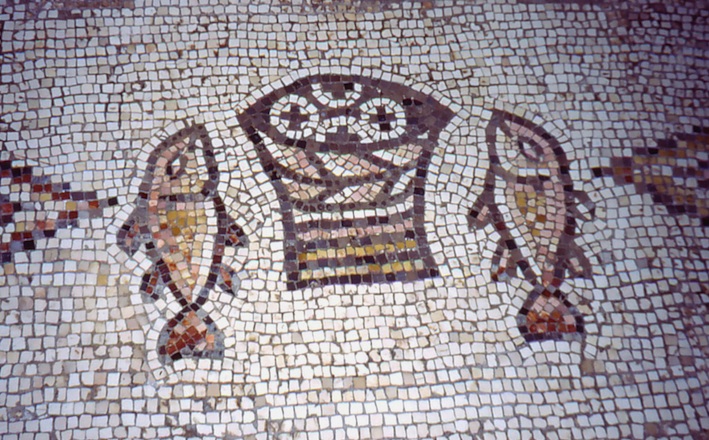Commentary on Psalm 145:8-9, 14-21
If you had to choose one passage to summarize all of Israel’s Scripture, you could do worse than Exodus 34:6-7.
Scholars call it the Bible’s “graciousness formula” (leave it to us scholars to domesticate grace down to a formula!). The Lord is gracious and merciful, slow to anger, and abounding in steadfast love. That glorious claim is at the heart of Psalm 145 (verses 8-9). The bones of the psalm are a poem, an acrostic, each line starting with a letter of the Hebrew alphabet from aleph to tav. God is to be praised from beginning to end, in every portion of creation, in all of our lives. This is the last of a lot of acrostic poems in the psalter. The “whole David” is reminding us one last time—at the end is nothing other than the unending praise of God.
This psalm has a special place in Judaism. It is a mini-summary of the entire faith. It shapes other important prayers in Judaism, such as the Kaddish, said in mourning for the loss of a family member for a year after their death. The Talmud promises that the one who prays this psalm three times a day “may be sure he is a child of the world to come.”1 Psalm 145 appears in Jewish prayer books more than any other psalm. We Christians may be tempted to glide over this psalm too quickly. Our Jewish forebears insist that we stop, and take note. Jesus learned his most famous prayer from somewhere. We know from whom he learned it, as he learned all his best stuff, while bouncing on Mary’s knee, hearing the songs and stories of Israel. Where did she learn it? From her people, who learned it from psalms like this one.
For a psalm so specifically Jewish, it is strikingly universal.2 This choir, full of songs of praise, is not limited to human beings. All creatures are there (verse 14). Everything that eats (verse 15). Everything that desires (verse 16). God’s election of Israel is not for Israel. It is through Israel, for everyone else. God’s calling of the church, and all of God’s gifts, are not for the church. They are through the church, for everyone else. Ours is a priestly vocation to gather and lead all creatures in praise. The mistake we make is thinking God and God’s blessings are ours. They are only “ours” as they are given away. God’s regard in choosing a people is for all the others besides that people. This is so strange to say, so counter-intuitive, it has to be said over and over again (hence the repetition of this prayer in Judaism): praise God, for God has chosen you, to bless not you, but all the others.
The psalm insists that God is to be praised every day. It is, of course, easier to praise when things are going well. The accent on the “every” suggests we must praise when we would rather not, when the result is one we would not prefer. God is not to be manipulated into blessing us. We are rather to manipulate ourselves into blessing God. The result of praising this way, doggedly, with determination, is to notice God’s all-encompassing goodness, even amidst difficulty. The great early-church preacher St. John Chrysostom describes how those who train themselves to pay attention to God constantly will also notice they are “adrift in an indescribable ocean of blessings.”3 Or as your grandmother taught you—count your blessings. You will run out of time. Therefore, we need eternity (verse 21).
Religions tend to circumscribe the circle tightly within which blessings are allocated. For us, not them. My side, my tribe, over against my enemies. Maybe human beings in general do this. This is why God comes among us as an enemy. God comes not as humanity in general, but to a specific people, Israel, a son of Abraham and Sarah. Even within that people, his own people, he is not widely loved, but much more widely rejected. So too among all people—perhaps especially by those who claim his name most fervently. Rowan Williams points out that the risen Jesus appears only to enemies: those who had rejected, abandoned, denied, and who thought they were done with him. They go from clueless, to confused, to clearer, and usually frightened. This is where the American movie industry would have instant and gratifying revenge. Arnold Schwarzenegger or Bruce Willis would dispatch the villain with a catchy line and all would cheer. Jesus does not dispatch. He forgives. And creates community among former abandoners and betrayers—the only kind of people available. We call it church—the church of forgiven enemies.
Since we draw tightly the circle of blessings around us and people like us, the psalm draws us as widely as possible. Everything that is fallen and low. Everything with eyes and need. Those who call, cry, desire, and fear. Everything that praises. Human beings are praise-bearing creatures—we cannot help but offer praise. The question is whether we will praise an idol, an unworthy would-be god, or the true and living God who creates the worlds and raises the dead.
The psalm suggests God’s favor as far as creatures have need. Everything in pain, God heeds. Bends low. Watches over.
This psalm, so close to the heart of all biblical faith, is the conclusive rebuttal to the sinful instinct in us that says faith is for me and those like me. No. It is for everyone but you.
And then, finally, for you too, for those who knowingly and intentionally offer praise, forever and ever.
Notes
- James Mays. Psalms. (Louisville: Westminster/John Knox, 2011), 437.
- Robert Alter. The Book of Psalms. (New York: Norton, 2009), 502.
- John Chrysostom. Commentary on the Psalms. Vol. 2, ed. Robert Charles Hill (Holy Cross Orthodox Press, 2007), 334.


August 2, 2020